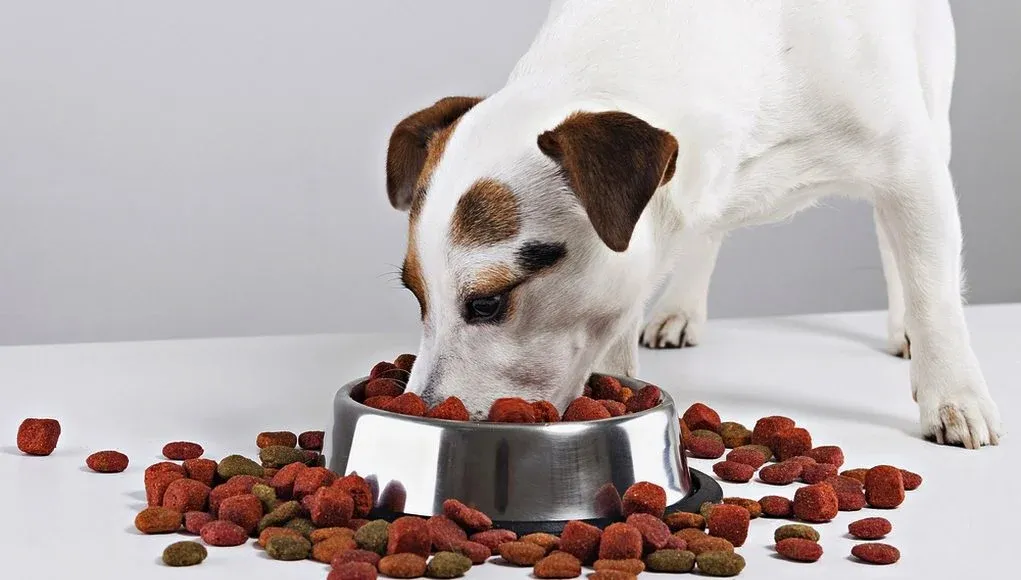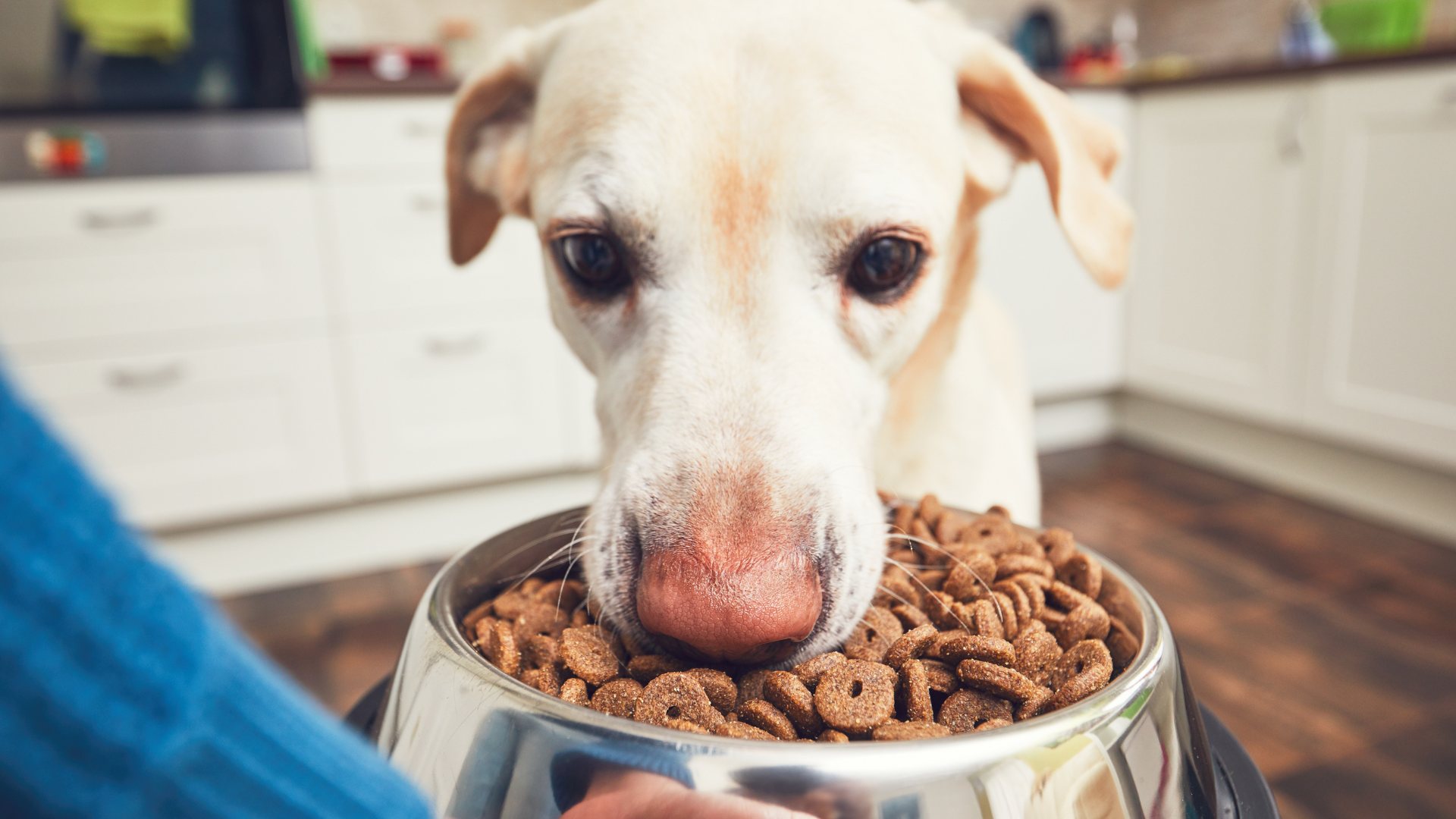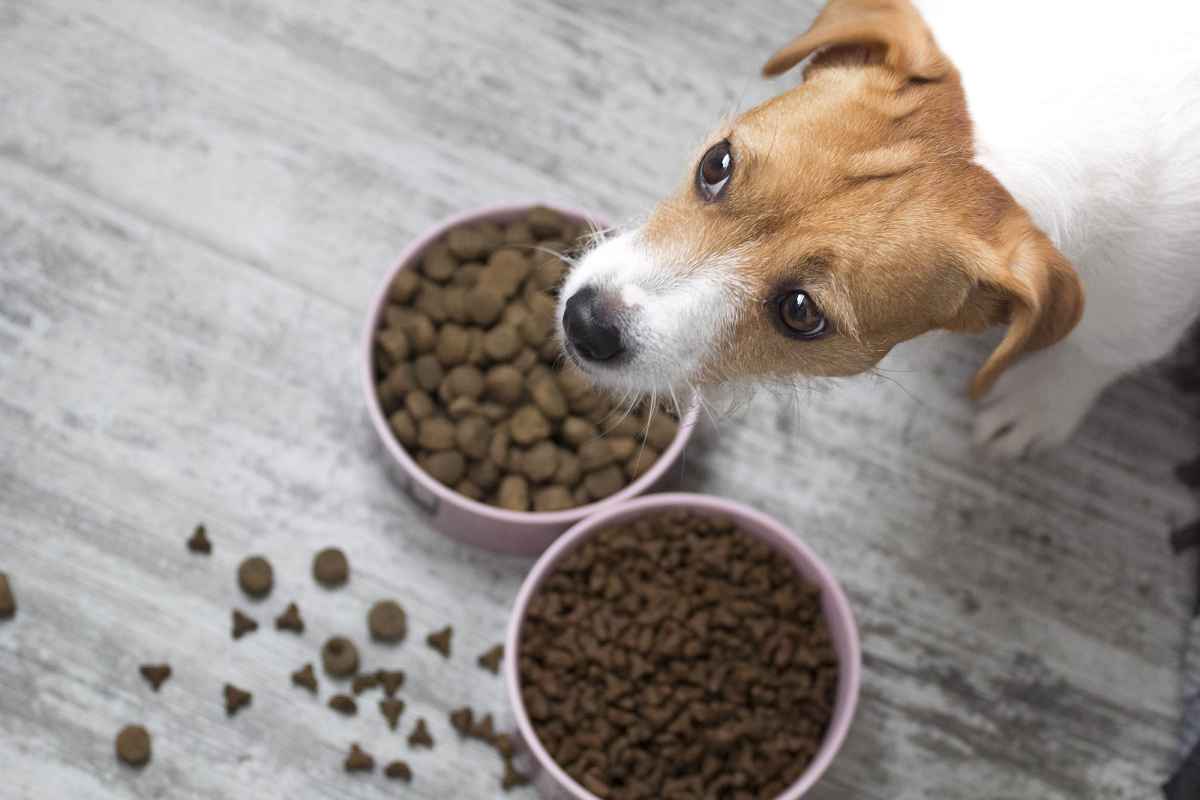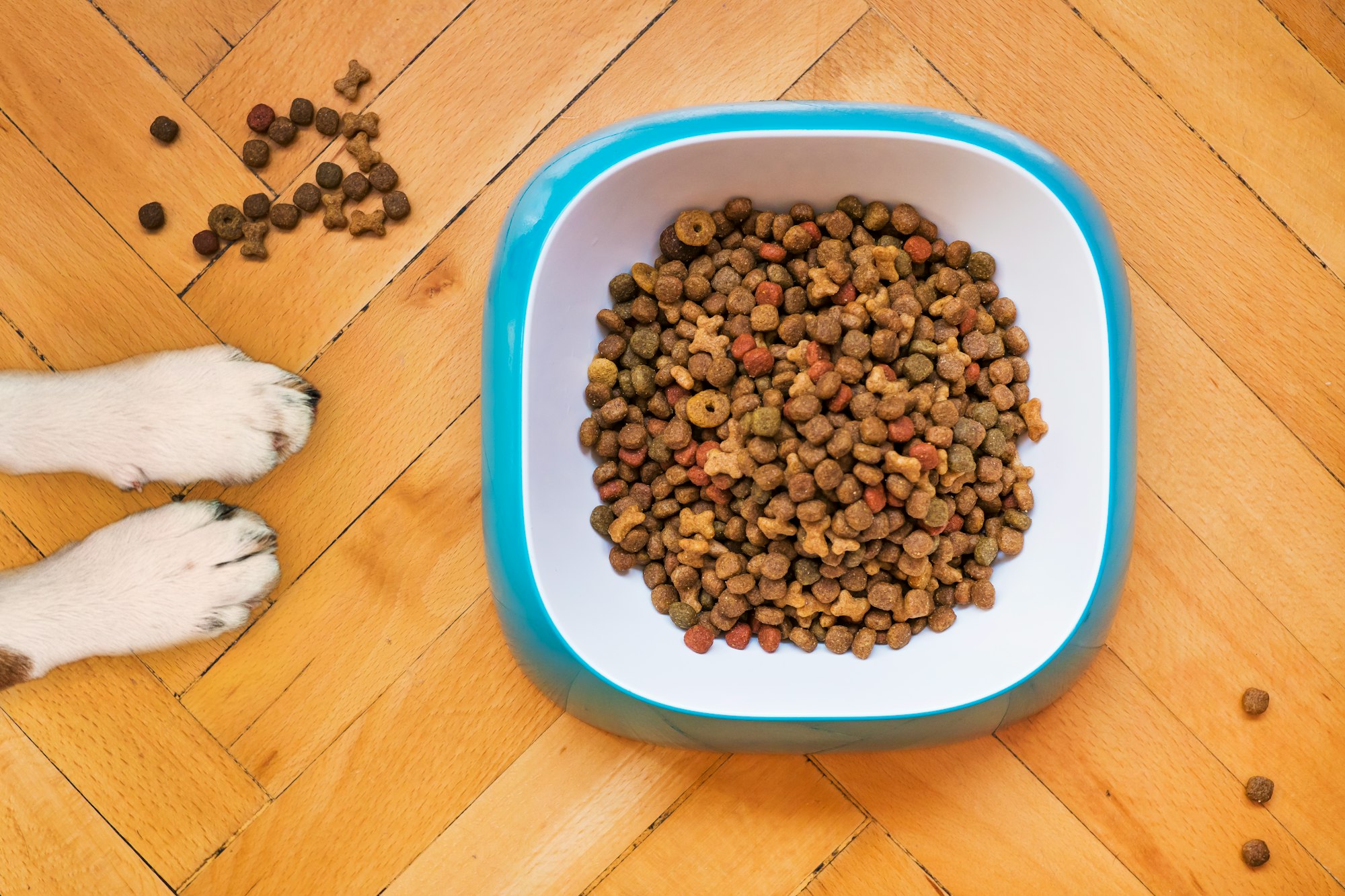Dog owners often wonder whether or not their dog's food goes bad. The answer is yes, dog food can go bad, and it's important for owners to be aware of the signs of spoilage. Just like human food, dog food can spoil and become unsafe for consumption.

One of the main factors that can cause dog food to go bad is exposure to air and moisture. When the bag or container of dog food is opened, it allows air and moisture to enter, which can lead to the growth of bacteria and mold. Additionally, if the food is not stored properly, such as being left out in the open or in a warm, humid environment, it can also spoil more quickly.
It's important for dog owners to check the expiration date on their dog's food and to properly store it to ensure it stays fresh for as long as possible. Additionally, owners should be aware of the signs of spoilage, such as a foul odor, mold growth, or a change in texture or color. By being proactive and knowledgeable about their dog's food, owners can ensure that their furry friend stays healthy and happy.

Understanding Dog Food Shelf Life
When it comes to feeding our furry friends, ensuring that their food is fresh and safe to consume is of utmost importance. Understanding the shelf life of dog food can help pet owners make informed decisions about the food they purchase and feed their dogs.
Expiration Dates and Best By Dates
Dog food, like any other food product, has an expiration date or a best by date. The expiration date indicates the last day that the food is safe to consume, while the best by date indicates the date by which the food is at its peak quality. It is important to note that the dates are not interchangeable, and consuming expired dog food can be harmful to a dog's health.
Preservatives and Their Role
Preservatives play a crucial role in extending the shelf life of dog food. They help prevent spoilage and the growth of harmful bacteria, ensuring that the food remains safe for consumption. Some common preservatives used in dog food include tocopherols (vitamin E), citric acid, and rosemary extract.
Factors Affecting Dog Food Quality
Several factors can affect the quality of dog food, including exposure to air, moisture, and light. Storing dog food in a cool, dry place away from direct sunlight can help extend its shelf life. Additionally, opening and closing the bag repeatedly can introduce air and moisture, which can cause the food to spoil more quickly.
In conclusion, understanding the shelf life of dog food is essential for ensuring that our furry friends are consuming safe and nutritious food. By paying attention to expiration dates, preservatives, and storage conditions, pet owners can make informed decisions about the food they purchase and feed their dogs.

Signs of Spoiled Dog Food
When it comes to feeding your furry friend, it's important to ensure that the food you give them is fresh and safe to eat. Spoiled dog food can cause health problems for your pet, so it's important to know the signs of spoiled dog food.
Visual and Olfactory Indicators
One of the most obvious signs of spoiled dog food is a rancid odor. If you notice a strong, unpleasant smell coming from your dog's food, it's likely that the food has gone bad. Additionally, if you see any mold or discoloration in the food, it's a clear sign that the food is no longer safe to eat.
Mold and Bacteria Presence
Mold and bacteria can grow in dog food that has been exposed to moisture or heat. If you notice any signs of mold or bacteria in your dog's food, it's important to discard it immediately. Mold can cause respiratory problems in dogs, and bacteria can cause a range of health issues.
To avoid feeding your dog spoiled food, it's important to store their food properly and to check the expiration date before feeding them. Additionally, it's a good idea to pay attention to any changes in your dog's behavior or health after feeding them, as spoiled food can cause digestive issues and other health problems.
Health Risks of Expired Dog Food
When it comes to feeding your furry friend, it's important to make sure that the food you give them is fresh and safe to eat. Expired dog food can pose a number of health risks to your pet, ranging from mild gastrointestinal issues to serious illness. In this section, we will explore some of the potential health risks associated with feeding your dog expired food.
Gastrointestinal Issues
One of the most common health risks associated with expired dog food is gastrointestinal issues. Dogs who consume expired food may experience vomiting, diarrhea, and other digestive problems. These symptoms can range from mild to severe, depending on the severity of the food's expiration.
Toxicity and Serious Illness
In addition to gastrointestinal issues, expired dog food can also pose a risk of toxicity and serious illness. Some types of expired food can contain harmful bacteria, such as botulism, which can cause serious illness or even death in dogs. Other types of expired food may contain mold or other toxins that can be harmful to your pet's health.
To avoid these health risks, it's important to always check the expiration date of your dog's food before feeding it to them. If you notice any signs of illness or digestive problems after feeding your dog expired food, it's important to contact your veterinarian right away.
Overall, it's important to take your dog's health seriously and make sure that they are only eating fresh, safe food. By being aware of the potential health risks associated with expired dog food, you can help keep your furry friend healthy and happy for years to come.
Proper Storage of Dog Food
When it comes to storing dog food, there are a few things to keep in mind to ensure that it stays fresh and safe for your furry friend to eat. In this section, we'll cover the ideal conditions for dry dog food, how to store wet dog food, and the benefits of using airtight containers.
Ideal Conditions for Dry Dog Food
Dry dog food should be stored in a cool, dry place with low humidity. Exposure to air and moisture can cause the food to spoil more quickly, so it's important to keep it in an airtight container. If the food is left out in the open, it can also attract pests like ants and rodents.
It's best to store dry dog food in its original bag or in a container specifically designed for pet food storage. These containers are often made of plastic or metal and have a tight-fitting lid to keep air and moisture out. Be sure to label the container with the date of purchase and expiration date so you can keep track of how long the food has been stored.
Storing Wet Dog Food
Wet dog food should be stored in the refrigerator once it's been opened. It's important to use an airtight container to prevent the food from drying out or absorbing any odors from the fridge. If the food has been left out at room temperature for more than two hours, it should be discarded to avoid the risk of bacterial growth.
When storing wet dog food, it's important to check the expiration date on the can or package. Once opened, the food should be consumed within three to five days to ensure freshness and safety.

Using Airtight Containers
Using airtight containers is one of the best ways to ensure that your dog's food stays fresh and safe to eat. These containers are designed to keep air and moisture out, which can help prevent spoilage and maintain the nutritional value of the food.
When choosing an airtight container, look for one that is made of durable materials like plastic or metal. It should have a tight-fitting lid that seals securely to prevent air and moisture from getting in. You can also consider purchasing a container with a built-in scoop to make it easier to measure out portions.
In conclusion, proper storage of dog food is essential to maintain its freshness and safety. By following these guidelines for storing dry and wet dog food and using airtight containers, you can ensure that your furry friend is getting the best possible nutrition.
Handling and Disposing of Expired Dog Food
When dog food reaches its expiration date, it can pose a risk to your pet's health. Therefore, it is important to handle and dispose of expired dog food properly. In this section, we will discuss safe disposal practices and when to consult a veterinarian.
Safe Disposal Practices
Expired dog food should never be fed to your pet, as it may contain harmful bacteria or toxins. Instead, it should be disposed of safely. Here are some safe disposal practices to follow:
- Seal the bag or container tightly to prevent any spills or leaks.
- Place the bag or container in a garbage bag and tie it securely.
- Dispose of the bag in a trash can with a secure lid to prevent animals from accessing it.
- If possible, avoid disposing of the dog food in a compost bin or down the drain.
By following these safe disposal practices, you can help prevent your pet and other animals from accessing and consuming expired dog food.
When to Consult a Veterinarian
If your pet has consumed expired dog food, it is important to monitor them for any signs of illness. Symptoms of food poisoning can include vomiting, diarrhea, lethargy, and loss of appetite. If you notice any of these symptoms, it is important to consult a veterinarian immediately.
In addition, if you have any concerns about your pet's health or nutrition, it is always best to consult a veterinarian. They can provide you with expert advice and guidance on how to keep your pet healthy and happy.
In conclusion, handling and disposing of expired dog food properly is important for the health and safety of your pet. By following safe disposal practices and consulting a veterinarian when necessary, you can help ensure that your pet stays healthy and happy.
Preventing Dog Food Spoilage
Dog food is a perishable product that can spoil if not stored properly. Spoiled dog food can lead to health problems for your pet and may even pose a risk to human health. Therefore, it is important to take steps to prevent dog food spoilage.
Tips for Buying and Storing Dog Food
When buying dog food, pet owners should look for packaging that is intact and has not been damaged. Damaged packaging can allow moisture and air to enter, which can lead to spoilage. Additionally, pet owners should check the expiration date or "best by" date on the packaging to ensure that the dog food is fresh.
Proper storage is also important for preventing dog food spoilage. Dog food should be stored in a cool, dry place away from heat and moisture. Exposure to heat and moisture can cause the food to spoil more quickly. Pet owners should also avoid storing dog food in areas where it may be exposed to air, such as near open windows or doors.
Understanding Food Labels and Lot Numbers

Pet owners should also pay attention to food labels and lot numbers when buying dog food. Food labels can provide information about the nutritional value of the food and any preservatives that may have been added. Additionally, lot numbers can be used to track the production and distribution of the dog food, which can be helpful in the event of a recall.
In conclusion, preventing dog food spoilage requires proper storage, attention to packaging and expiration dates, and an understanding of food labels and lot numbers. By taking these steps, pet owners can help ensure that their furry friends are getting the freshest and safest food possible.
Choosing the Right Dog Food
When it comes to choosing the right dog food, there are several factors to consider. Assessing nutritional value and freshness, as well as recognizing reliable brands and recalls, are crucial steps in making an informed decision.
Assessing Nutritional Value and Freshness
Nutrients are essential for a dog's health and well-being. Therefore, it is important to choose dog food that contains all the necessary nutrients in the right amounts. This can be determined by reading the label and checking the ingredients list. Look for high-quality protein sources, such as chicken, beef, or fish, as well as essential vitamins and minerals.
Freshness is also a key factor to consider. Unopened dry food can typically last up to a year, while canned food should be consumed within a few days of opening. It is important to check the expiration date and avoid purchasing expired products. Additionally, storing the food in a cool, dry place can help maintain its freshness.
Recognizing Reliable Brands and Recalls
Choosing a reliable brand can help ensure the quality and safety of the dog food. Look for brands that have been in business for a long time and have a good reputation. It is also important to stay informed about any recalls or safety concerns related to specific brands or products. Checking the FDA's website or subscribing to recall alerts can help keep pet owners up-to-date on any potential issues.
In summary, choosing the right dog food involves assessing nutritional value and freshness, as well as recognizing reliable brands and recalls. By taking these factors into consideration, pet owners can make informed decisions and provide their furry friends with the best possible nutrition.
Conclusion
Understanding the shelf life of dog food is essential for maintaining your pet's health and well-being. By considering factors such as ingredients, packaging, and storage conditions, you can ensure your furry friend enjoys fresh, nutritious meals while minimizing the risk of spoilage and contamination.

Frequently Asked Questions
- How long can you keep dog food once it's been opened?
- Once a bag of dog food has been opened, it can last for up to six weeks if stored properly. However, it is recommended to use it within two to three weeks to ensure freshness and optimal nutrition for your furry friend.
- What are the signs that dry dog food has spoiled?
- One of the most common signs that dry dog food has gone bad is the presence of mold or an unpleasant odor. Other signs include a change in color or texture, or if there are any insects or pests in the bag.
- Is it safe for dogs to eat food that has been exposed to high temperatures?
- No, it is not safe for dogs to eat food that has been exposed to high temperatures. When dog food is exposed to heat, it can cause the fats in the food to become rancid, which can lead to digestive issues and other health problems.
- What are the potential health effects for a dog that eats stale food?
- If a dog eats stale or spoiled food, it can lead to digestive issues such as vomiting and diarrhea. In severe cases, it can also lead to bacterial infections and other health problems.
- How should dog food be stored to ensure freshness?
- Dog food should be stored in a cool, dry place, away from direct sunlight and moisture. It should be kept in an airtight container or the original bag with the top rolled down and secured with a clip or rubber band.
- Can consuming expired dog food have fatal consequences for dogs?
- In rare cases, consuming expired dog food can have fatal consequences for dogs. It can lead to bacterial infections, which can cause severe illness and even death. It is important to always check the expiration date on the dog food bag and dispose of any expired food immediately.




